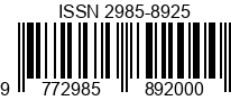Penundaan Masa Menstruasi Dalam Ibadah Puasa Ramadhan Menurut Fatwa MUI No. 2 Tahun 1979
DOI:
https://doi.org/10.54298/tarunalaw.v1i01.75Keywords:
Menstruation, Ramadan Fasting, MUI Fatwa No. 2 of 1979Abstract
Fasting during Ramadan is an obligation for every Muslim/Muslimah who is mature, wise, clean from menstruation and after childbirth for women, and who does not have a valid excuse, such as: travelers and sick. Meanwhile, menstruation is a natural process that occurs in every woman. With the current breakthroughs in medical science, drugs have emerged that can delay menstruation experienced by women, making it possible to carry out Ramadan fasting without obstacles. This type of research is library research (library research) with a historical approach. The data collection method is by means of literature study, in which in this section the author will collect MUI fatwas and fiqh books on the topic being researched. Then read and trace the legal istinbath method. The results of the study show that the negative impact of this drug affects the body's work system, so its use in an inappropriate place is not recommended. While the positive impact on health, the authors assume there is no. Because, this drug aims to block the natural cycle that occurs in women. Then the use of drugs that are not on target or used in the long term or made from inappropriate ingredients, will certainly have implications for the body. Meanwhile, Nash has not yet regulated the legal status of delaying menstruation. So ijtihad is needed in this case by looking at the benefits. If you delay your menstrual period using drugs, you will examine the side effects. If it causes harm to the body, it is better to avoid it. However, if it does not cause harm then it is permissible. As stated in the MUI fatwa No. 2 of 1979
References
Hasan Saleh. Kajian Fiqh Nabawi & Fiqh Kontemporer. Jakarta: PT Raja Grafindo Persada, 2018.
Mujibuddin. Hukum Mengkonsumsi Obat Penunda Haid Dalam Pelaksanaan Ibadah Haji. Jawa Tengah: Media Guru Indonesia, 2019.
Qotadah, Hudzaifah Achmad, Iqbal Syafri, and Adang Darmawan Achmad. “Fostering Religious Inclusivism Attitudes in School Through Learning The Quran and Ḥadīth.” International Journal of Islamic Thought and Humanities 1, no. 2 SE-Articles (September 1, 2022): 145–55. https://doi.org/10.54298/ijith.v1i2.42.
Roibin. Sosiologi Hukum Islam “Telaah Sosio-Historis Pemikiran Imam Syafi’i.” Jogyakarta: UIN Malang Press, 2010.
satria wiguna. Dasar-Dasar Bimbingan Konseling Islam. 1st ed. jakarta: CV Pustaka Media Guru Indonesia, 2019.
Satria Wiguna, Ahmad Darlis. “Jurnal Dirosah Islamiyah Kontribusi Pemikiran Pendidikan Az-Zarnuji Dalam Kitab Jurnal Dirosah Islamiyah.” Jurnal Dirosah Islamiyah 3 (2021): 420–27. https://doi.org/10.17467/jdi.v3i3.576.
Satria Wiguna, Ahmad Fuadi. “NILAI-NILAI PENDIDIKAN ISLAM DALAM TRADISI TAHLILAN DI DESA BATU MELENGGANG KECAMATAN HINAI.” Thawalib : Jurnal Kependidikan Islam 3, no. 1 (2022): 15–24.
Sugiyono. Metode Penelitian Pendidikan. Bandung: Alfabeta, 2018.
Sujono, Imam. “Legal Review of Marriage for Divorced Women Outside the Religious Courts.” International Journal of Islamic Thought and Humanities 1, no. 1 (March 1, 2022): 1–16. https://doi.org/10.54298/ijith.v1i1.10.
Tim Penyusun Kementarian Agama RI. Himpunan Fatwa MUI Sejak 1975. Jakarta: Erlangga, 2018.
Widyastri, Sri, Abuddin Nata, Said Agil Husin Al Munawar, and Suparto Suparto. “Transmission of Al-Qur’an Learning in Saudi Arabia and Indonesia.” International Journal of Islamic Thought and Humanities 1, no. 2 SE-Articles (September 1, 2022): 117–31. https://doi.org/10.54298/ijith.v1i2.37.
Downloads
Published
How to Cite
Issue
Section
License
Copyright (c) 2023 Surya Rahmadana, Azhar, Suaib Lubis

This work is licensed under a Creative Commons Attribution-ShareAlike 4.0 International License.
Authors who publish with this journal agree to the following terms:
- Authors retain copyright and grant the journal right of first publication with the work simultaneously licensed under a Creative Commons Attribution-ShareAlike that allows others to share the work with an acknowledgement of the work's authorship and initial publication in this journal.
- Authors are able to enter into separate, additional contractual arrangements for the non-exclusive distribution of the journal's published version of the work (e.g., post it to an institutional repository or publish it in a book), with an acknowledgement of its initial publication in this journal.
- Authors are permitted and encouraged to post their work online (e.g., in institutional repositories or on their website) prior to and during the submission process, as it can lead to productive exchanges, as well as earlier and greater citation of published work (See The Effect of Open Access).














